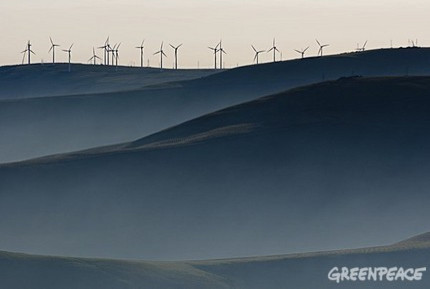Business Leaders To Hash Out Green Growth Strategy
How to

A big point of contention at the G20 Business Summit is how to reconcile the need for growth with the need to address environmental problems.
Some businesses -- represented by the Canadian Chamber of Commerce -- call for pro-growth policies, which generally means lower taxation and cutting deficits.
One proposal from the G20 Business Summit's Working Group for Creating Green Jobs is putting a price on carbon. That usually means a carbon tax -- but a number of business and political leaders, notably in the U.S., have opposed such taxes.
For decades the world has relied on fossil fuels. But addressing global warming and concerns about global supplies in geopolitically unstable areas are driving many governments to seek ways to reduce consumption and boost energy efficiency.
Jean Pascal Tricoire, CEO of Schneider Electric, said the issue of efficiency and conservation is key to framing the questions about sustainable growth. He said in many developing nations, the price of energy is high, and there often isn't enough to ensure robust economic growth. At the same time that price of energy is probably correct, because in developed countries energy is abundant, and often too cheap.
If energy is more expensive, he said, people will use it more efficiently. Tricoire said efficiency will actually provide a long-term savings -- and building efficient systems will provide jobs and can fuel growth.
Only a fraction of the buildings in Paris, or New York, are energy efficient, he said. Retrofitting them is a big business.
But a carbon tax is likely to encounter resistance, especially from regions that depend on resource extraction. Regulations that mandate a certain percentage of energy come from renewable sources have also met opposition.
The chief executive officer of Vestas, one of the world's largest makers of wind turbine systems, Ditlev Engel, who leads the working group on green jobs, said the focus on any plan for growth has to be employment.
At the same time, there are many subsidies, direct and indirect, encouraging fossil fuel use. Some countries directly subsidize gasoline, while others offer tax breaks to coal miners. Ending subsidies will make power sources such as wind more competitive.
Korea itself has taken several steps to promote green growth -- the country's Presidential Committee on Green Growth presented several initiatives, such as a high speed rail network and cleanup projects in the country's four major rivers. Korean President Lee Myung-Bak has made it a centerpiece of his government's energy policy.
But an overall policy framework will have to get past resistance from both affected business and governments. For example, in the U.S., the recent Congressional elections brought a Republican -- and more conservative -- majority to the House of Representatives, which is going to be skeptical of environmental initiatives that it sees as slowing growth.
Another problem is that the business leaders -- such as Perrin Beatty, CEO of the Canadian Chamber of Commerce -- are calling for an end to stimulus-led growth. But to promote many green energy projects local and national governments use tax incentives. It isn't clear if that counts as stimulus led.
Tricoire said the problem with business as usual, however, is that economic growth that is bought with cheap energy now incurs much higher costs later on -- costs that can also hurt growth prospects. Engel touched on a similar issue, noting that the state of Colorado moved to using more renewable energy -- primarily wind -- when the external costs of coal use, such as its effect on people's health, were considered.
© Copyright IBTimes 2025. All rights reserved.





















